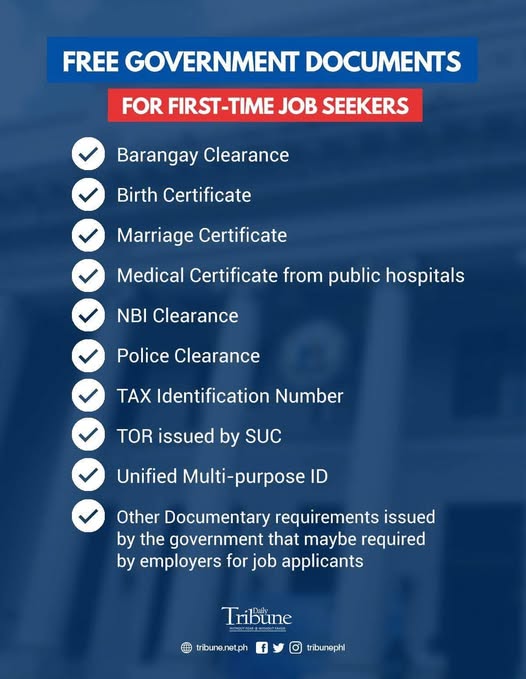Graduating from college is one of the most significant milestones of our lives.
Besides finally finishing your studies (unless you’re taking post-graduate studies or going to med or law school), it also marks the beginning of our careers.
That said, between preparing our resumes, crafting our LinkedIn profiles, and getting our pre-employment requirements, many fresh graduates often overlook understanding the various Philippine labor laws that protect their rights as employees.
Why is this so important? And what are these Philippine laws designed to protect our labor rights?
Additionally, what if you’re applying for an online work from home setup? Do you these laws still apply?

Why is Understanding Labor Laws So Crucial for First-Time Jobseekers?
The growth of internet-based employment opens so many new opportunities for fresh grads, regardless of their geographic location.
However, this growth also exposes them to so many scams and unscrupulous practices like “training charges,” the absence of written contracts, and underpaid or unpaid overtime.
Thus, having a clear understanding of Philippine labor laws helps fresh graduates like you to avoid these red flags and make smarter decisions.
Furthermore, showing your savviness in statutory entitlements like overtime and night shift pay, 13th month pay, and employment security of tenure can help you make the most out of your legal compensation.
Understanding Your Legal Rights
Let’s now take a look at the various Philippine labor laws that fresh graduates should be familiar with:
Labor Code of the Philippines – Basics on Employment Rights
No discussion of Philippine labor laws for fresh graduates is complete without mentioning Presidential Decree No. 442, also known as the Labor Code of the Philippines.
Signed on May 1, 1974, by then-President Ferdinand Marcos, this law consolidated and revised previous labor and social laws into a single code.
Its core objective is to “afford protection to labor, promote full employment, ensure equal work opportunities, and regulate relations between workers and employers.”
The labor code is divided into seven “books,” but the most critical sections for first-time jobseekers are found in:
- Book II (Conditions of Employment):
- Sets standards for work hours, rest days, holidays, and overtime.
- Book III (Terms and Conditions of Employment):
- Covers probation, regularization, termination, and separation pay, and enshrines employees’ due process rights.
- Book IV (Health, Safety, and Social Justice):
- Mandates occupational safety regulations and benefits like service incentive leaves and protection against discriminatory practices.
- Books V-VII (Labor Relations, Notices of Termination, and Special Provisions):
- Deals with labor relations (unions and collective bargaining), settling of disputes, and special provisions.
13th Month Pay and Other Mandatory Benefits
One unique benefit allotted to Filipino employees is the 13th-month pay.
Instituted by Presidential Decree 851 (PD 851) on December 16, 1976, the 13th-month pay is an additional cash benefit equivalent to one-twelfth (1/12) of an employee’s total basic salary earned within a calendar year.
This benefit covers all rank-and-file employees within the private sector, regardless of position or designation, so long as they’ve worked at least one month during the calendar year.
It’s typically paid on or before December 24, and employers can choose to issue it in two installments (i.e., half-year and December) so long as the full amount is paid before Christmas Eve.
Besides the 13th-month pay, other mandatory benefits available to Filipino workers include:
Minimum Wage
Minimum wage is the lowest hourly wage that employers can legally pay their employees, and covers all regular and probationary employees in a given region.
In the Philippines, this is set by the Regional Tripartite Wages and Productivity Boards, which meet quarterly to adjust rates based on inflation, cost of living, and sectoral productivity.
Service Incentive Leave (SIL)
A Service Incentive Leave (SIL) is a statutory entitlement under Article 95 of the Labor Code, guaranteeing you five days of paid leave once you’ve completed one year of service with your employer.
You can use your SILs for vacation, personal needs, or medical reasons – and if a fixed and agreed-upon amount remains unused at year’s end, you can convert it to cash.
SSS, Pag-IBIG, and Philhealth Contributions
Private sector employees in the Philippines are mandatorily enrolled in three social welfare systems – Pag-IBIG, SSS, and Philhealth.
- Social Security Service (SSS):
- Covers sickness, maternity, disability, retirement, death, and salary-loan benefits.
- PhilHealth:
- Offers inpatient and outpatient medical coverage – reducing your out-of-pocket expenses for hospitalization and selected procedures.
- Pag-IBIG Fund:
- Provides access to low-interest housing loans, short-term salary loans, and a mandatory savings program.
- Every month, you and your employer must pay a fixed percentage of your “salary credit” for these mandatory contributions in the Philippines.
For a guide to registering for these benefits as a self-employed worker, click here.
Public Sector workers, on the other hand, are covered by GSIS (Government Service Insurance System) instead of SSS.
GSIS is automatic for permanent, casual, and contractual government employees, including Government-Owned or Controlled Corporations (GOCCs).
Despite being meant for government employees, the registration requirements for GSIS are similar to SSS members.
Probationary Periods
You don’t become a regular employee immediately after hiring. You need to go through what is called the probationary period first.
In the Philippines, the probationary period for employment is mainly governed by Article 296 (formerly Article 281) of the Labor Code of the Philippines.
This states that the maximum probationary period shall never exceed six months from the date the employee started working. If you continue working beyond six months, you’re deemed a regular employee by the law, even without formal regularization.
In addition, probationary employees are entitled to mandatory benefits in the Philippines (i.e., SSS and PhilHealth) and equal treatment similar to regular workers.
Finally, you’re also entitled to security of tenure for your employment; thus, you can’t be fired without just cause or unless you fail to meet reasonable standards and expectations communicated at the beginning of your contract.
Night Shift Differential and Holiday Pay
Are you a night owl?
Article 86 of the Labor Code of the Philippines stipulates that employees are entitled to a night shift differential (NSD) of not less than 10% of their regular wage for each hour worked between 10:00 PM and 6:00 AM.
Generally, all rank-and-file employees within the private sector are entitled to an NSD, regardless of their employment status. That said, managerial employees are exempt from receiving this.
Aside from this, Article 94 of the Labor Code also mandates that employees are entitled to their regular daily wage during regular holidays, even if they didn’t work on those days.
However, if you worked during a regular holiday, you’re entitled to 200% of your daily wage for the first eight hours of your shift.
Regular holidays in the Philippines include:
- New Year’s Day (January 1),
- Maundy Thursday and Good Friday,
- Araw ng Kagitingan (April 9),
- Labor Day (May 1),
- Independence Day (June 12),
- National Heroes Day (Last Monday of August),
- Bonifacio Day (November 30),
- Christmas Day (December 25),
- Rizal Day (December 30), and
- Others, as declared by law.
Rules on Termination and Employee Rights
Finally, let’s discuss your rights concerning termination of employment.
Under Article 297 of the Labor Code, an employer may terminate an employee for just causes, like:
- Serious misconduct or willful disobedience of lawful orders,
- Gross and habitual neglect of duties,
- Fraud or willful breach of trust,
- Commission of a crime against the employer or their family, and
- Other causes analogous to the above.
During such cases, an employer must follow due process, which involves:
- A written notice specifying the grounds for termination,
- An opportunity for the employee to respond and be heard, and
- A final notice of termination if the employer decides to proceed.
Aside from this, your employment can also be terminated based on Authorized Causes under Articles 298 and 299, like:
- Installation of labor-saving devices,
- Redundancy,
- Retrenchment to prevent losses,
- Closure or cessation of business operations,
- Disease not curable within six months and detrimental to the employee or co-workers.
For these, the employer must do the following:
- Provide a written notice to the employee and the Department of Labor and Employment (DOLE) at least 30 days before the termination date, and
- Pay the appropriate separation pay, which varies depending on the cause.
Separation Pays Entitlement
Employees terminated for Authorized Causes are entitled to separation pay for the following:
- Redundancy or Installation of Labor-Saving Devices:
- One month’s pay or one month’s pay for every year of service, whichever is higher.
- Retrenchment, Closure, or Disease:
- One month’s pay or half a month’s pay for every year of service, whichever is higher.
Note: employees dismissed for just causes are generally not entitled to separation pay.

Special Philippine Laws Benefitting Fresh Graduates and First-Time Jobseekers
Aside from the laws mentioned above, the Philippine government also provides the following benefits for fresh graduates to help them get their careers off the ground:
First-Time Jobseekers Assistance Act (Republic Act 11261)
Enacted in 2019, the First-Time Jobseekers Assistance Act (Republic Act 11261) aims to support first-time jobseekers by waiving government fees for pre-employment requirements.
To benefit from this law, you must be:
- A Filipino citizen,
- Actively seeking employment for the first time,
- A resident of your barangay for at least six months, and
- Able to obtain a Barangay Certification confirming your status as a first-time jobseeker.
Note: this benefit is only available once and is valid for only one year from the issuance date of the Barangay Certification.
Under this law, fresh graduates can obtain the following documents for their job checklist for free:
- National Bureau of Investigation (NBI) Clearance for Job Applications,
- Police Clearance Certificate,
- Barangay Clearance,
- Medical Certificate from Public Hospitals (Excluding Laboratory Tests and Other Medical Procedures),
- Birth Certificate (Issued by the Philippine Statistics Authority),
- Marriage Certificate (Issued by the Philippine Statistics Authority),
- Transcript of Records From State Universities and Colleges,
- Tax Identification Number (TIN),
- Unified Multi-Purpose ID (UMID), and
- Other government-issued documents.
Data Privacy Law and Its Impact on Job Applications
Protecting your personal information is especially crucial today.
Thus, one of the most important Philippine laws that fresh graduates like you must know is the Data Privacy Act of 2012.
Here’s how it affects you during your job hunt:
- Background Checks:
- Employers must first obtain proper consent when conducting background checks and ensure data is solely used for the employment verification process.
- Data Retention:
- Personal data collected during the application process must not be retained longer than necessary; thus, you can request the deletion of your data if you’re not hired.
- Third-Party Sharing:
- If your employer shares your data with third parties (i.e., background checks agencies), they must ensure that these parties also comply with the Data Privacy Act’s provisions.
Anti-Age Discrimination in Employment Act
Discrimination in the workplace isn’t exclusive to race, gender, or social status; sometimes, you can be discriminated against due to your age.
To address this, Congress passed the Anti-Age Discrimination in Employment Act (RA 10911) to ensure everyone, regardless of age, has equal employment opportunities.
For first-time jobseekers, this means employers must assess a candidate based on their qualifications and skills, rather than their age.
Furthermore, job postings should not deter applicants by specifying age-related criteria, and once employed, they should be entitled to the same benefits and promotion opportunities as all the other employees.
Magna Carta for Workers in the Informal Economy
To meet the needs of the growing number of freelancers and other informal workers, the Philippine Congress proposed a new Magna Carta specifically for Workers in the Informal Economy.
This legislative measure is aimed at recognizing and protecting the rights of workers operating outside the formal employment sector.
If you’re planning to work freelance, this proposed law ensures you have the right to fair wages, safe working conditions, protection against unjust practices, and access to social protection programs.

Legal Aspects of Online Work and Freelancing
Traditionally, Filipino freelancers and remote workers have operated outside the scope of standard labor protections.
Fortunately, legislative efforts like the Freelance Workers Protection Act aim to extend certain rights and benefits to them.
In addition, even in the absence of a traditional employer-employee relationship, it’s still crucial to have clear, written contracts. Having one helps prevent misunderstandings and provides legal recourse in case of disputes.
Aside from this, since freelancers are considered self-employed, they’re required to register as such with the Bureau of Internal Revenue (BIR). For a guide to doing so, click here.
Note that while new graduates don’t have automatic travel tax exemption, they can apply for it if they’ve been granted scholarships by appropriate government agencies and are pursuing studies abroad for at least a year.
Common Mistakes Fresh Grads Make On Their First Jobs (And How to Avoid Them)
Here are some common mistakes fresh grads make – and how to avoid them:
Accepting Offers Without Written Contracts
Due to their eagerness to start working, particularly if the job comes with a hefty salary, some fresh grads are willing to accept job offers based solely on verbal agreements.
Without a written contract, you lack proper documentation of your role, salary, benefits, and other essential terms, leading to misunderstandings and disputes down the line.
How to Avoid This
- Always request a written employment contract before starting work.
- Review the contract thoroughly, ensuring all agreed-upon terms are there.
- Seek clarification on any clauses you don’t understand.
Ignoring Statutory Benefits
Another common mistake fresh grads make is forgetting (or outright ignoring) to sign up or check their mandatory contributions in SSS, Pag-IBIG, and PhilHealth.
These benefits aren’t only legally mandated, but they’re also meant to improve your financial security and well-being. Thus, ignoring them leads to inadequate coverage and missed entitlements.
How to Avoid This
- Register with SSS, Pag-IBIG, and PhilHealth.
- Regularly check your contributions through official portals.
- Understand your entitlements, including leave benefits and 13th-month pay.
Not Understanding NDAs or Non-Compete Clauses
Before signing any document, always read its contents carefully first.
One such document fresh grads should watch out for is your company’s Non-Disclosure Agreements (NDAs) or Non-Compete Clauses.
These clauses can restrict your future employment options, as these often prevent you from working for competing companies for a set amount of time (typically one to five years).
How to Avoid This
- Read all clauses carefully before signing.
- Consult a legal professional if you’re unsure about any clauses or terms.
Working Without Proper Registration
Besides their mandatory benefits, many first-time jobseekers forget to register for their Tax Identification Number (TIN) as well, since they assume their company’s HR would do it for them.
Failing to register for your taxes could lead to issues and penalties with BIR down the line.
How to Avoid This
- Make sure your employer has submitted your registration to the BIR.
- Keep copies of all your registration documents for personal records.
How to Protect Yourself Legally as a First-Time Jobseeker
To ensure you’re legally protected while job hunting, watch out for various red flags in job offers. These include verbal-only offers, overly restrictive NDAs, and up-front “reservation” or processing fees.
Next, if you’re looking for virtual job openings, refer only to legitimate sites like PhilJobNet and Remote Staff. These sites often vet their clients, reducing the risk of fraud and ensuring a healthy working relationship between you and your employer.
Finally, in the event of contract disputes or unpaid wages, suspected illegal dismissal, and even simply understanding complex legal clauses, don’t hesitate to seek legal assistance or file a complaint with DOLE.
FAQs: Legal Tips for New Grads Entering the Workforce
Here are some of the most common questions fresh graduates ask regarding the various Philippine labor laws:
What Government Benefits Should I be Enrolled in as a New Hire?
Just before, or immediately after, getting hired, you must be enrolled in the following programs:
- Social Security System (SSS):
- Provides financial assistance in cases of sickness, maternity, disability, retirement, and death.
- Philippine Health Insurance Corporation (PhilHealth):
- Offers health insurance coverage for hospitalization, surgeries, and other medical expenses.
- Home Development Mutual Fund (Pag-IBIG Fund):
- Facilitates savings for housing loans, short-term loans, and other financial assistance programs.
Can I Negotiate My Salary as a Fresh Graduate?
Of course.
Negotiating your salary is crucial, as it sets the foundation for your future earnings.
To help improve your chances of negotiating proper compensation, click here.
How Long Can a Company Keep Me in Probation?
According to Article 296 (formerly 281) of the Labor Code of the Philippines, an employee’s probationary period should not exceed six months.
Additionally, if you continue working after six months without being terminated or having your probation extended under valid circumstances, you’re automatically treated as a regular employee by the law.
Can I Demand a Certificate of Employment After Resignation or Termination?
Yes, you can.
As a former employee, you have the right to request and obtain a Certificate of Employment (COE) from your employer, regardless of whether you resigned or were terminated.
To request a COE, submit a letter or email to your former HR department, which includes your full name, position, and dates of employment.
According to DOLE Labor Advisory No. 06, Series of 2020, employers are mandated to issue a COE within three days from the date of your request.

Know Your Rights, Own Your Career
For many first-time jobseekers, entering the workforce means navigating a new and unfamiliar territory.
Fortunately, by knowing your rights and responsibilities under Philippine law, fresh graduates like yourself will have an easier time building a stable career.
Already familiar with your rights, but don’t know where to start looking for legit online jobs? Remote Staff is here to help.
Our jobs list contains plenty of remote career opportunities to choose from, ranging from virtual assistant jobs and online transcription jobs to online writing and design ones.
Ready to start your online career? Click here. Good luck!

